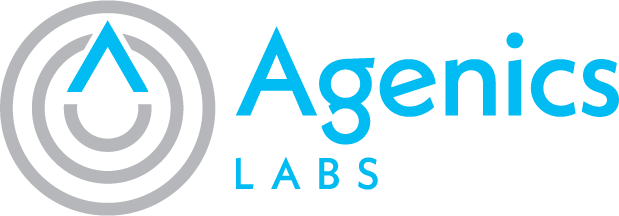Georgia Dental Rule FAQ
Summary and Resources Infographic
Here, we’ll provide answers and guidance to the most frequently asked questions in relation to the new law in Georgia (Rule 150-8-.05) regarding dental unit water quality. The new regulations are effective July 20, 2025.
The rule is designed to ensure patient safety by setting standards for the water used in nonsurgical procedures.
GDA News: Board of Dentistry Issues Notice of Intent to Adopt Dental Unit Water Quality Rule
Frequently Asked Questions
-
It is anticipated that every practice in the state of Georgia will be receiving a letter by mail formally notifying them of the new rule and its requirements.
-
With an effective date of July 20, 2025 and the requirement for quarterly testing, we recommend all offices complete testing of all waterlines by September 30th, 2025.
-
CFU is the abbreviation for colony forming units. CFUs are an estimate of the number of living microorganisms that are capable of replicating and growing into visible clusters. Monitoring CFUs can help indicate risk of biofilm formation.
The EPA first established 500 CFU as a safe limit for drinking water. In 2003, the CDC adopted this standard for application to dental water stating that dental practices should “use water that meets EPA regulatory standard for drinking water (i.e., ≤500 CFU/mL of heterotrophic water bacteria) for routine dental treatment output water”.
-
There is currently no regulatory recommendation for when chairs must be shut down. Check with your chair manufacturer, as some manufacturers have established such guidelines. Otherwise, we recommend establishing a protocol within your office’s Waterline Management SOP that achieves reasonable risk mitigation. This may include shutting a chair down after a certain number of repeat failures (we would recommend 3) or when the CFU count is above a more extreme threshold (we would recommend above 10,000 CFU).
-
No. The rule allows for ‘pooled sampling’. A pooled sample is comprised of equal volumes of water from each line on a single delivery unit. The Dental Rule specifies up to 10 lines may be combined in a pooled sample, so long as they are from the same unit.
-
Yes. In-office water tests such as the MyCheck paddle are suitable for compliance with the rule.
NOTE: If using a color indicating or test strip Pass/Fail in-office test that does not provide a quantified result, Agenics recommends testing with a quantified water test at least once a year. -
No. It simply means that if an independent testing entity is used, their reports must be included as part of the office’s water testing records.
-
The rule states “remedial actions mean any action necessary to reduce the CFUs to five hundred or a lesser number…” Such actions will most commonly include shocking the failed waterlines and retesting until passing results are obtained. Many variables can impact the quality of waterlines; however, so Agenics recommends assessing the root cause of the failure and treating it accordingly.
We like to use the simple phrase: Act, STAT!
SHOCK, TEST, ASSESS, TREAT. -
It is recommended to remove any detachable components before collecting your water sample including A/W syringe tips, handpieces, etc.
-
Yes! In fact, these are often the most frequent source of failures and may require daily flushing if not regularly used.
-
Yes. No matter what source water or treatment you are using, testing must be performed every 90 days. Testing is the only way to know your treatment protocol is effective.
-
No. Sterile water must be used for surgical procedures and by its design, does not require testing at the time of use.
-
No. The rule is only for monitoring the water being used in dental delivery unit supply lines. This includes any line that has water in it, even if the water doesn’t exit the handpiece including A/W syringe, de-scalers, high-speed and low-speed handpieces if water is used as a coolant.
-
Yes. Cross-contamination is best mitigated by flushing in between patients and the CDC continues to recommend flushing.
-
Yes. Effective January 1, 2024, dentists and hygienists in Georgia are required to complete two hours of continuing education in infection control every two years and at least one of the hours must include dental unit waterline safety. GA R&R Rule 150-5-.02 and GA R&R Rule 150-5-.05
-
The regulation requires quarterly testing. To simplify ordering, Agenics offers Annual Kits which includes everything you need for quarterly water testing and with an overall 10% savings in cost.
Submit Additional Questions
If your question was not answered above, please use the form below to submit your question to us directly. Our team will get back to you with a response as soon as possible.
Understanding Rule 150-8-.05
The new regulation is now published with an effective date of July 20, 2025. For a breakdown of the rule requirements and what it means for practices, see our Article: Georgia Dental Water Quality Rule 150-8-.05
How Agenics Labs Simplifies Compliance
Thorough Documentation
We deliver clear, data-rich reports to help you identify and address any water quality issues promptly. All results are provided in a validated report accessible 24/7 via our online portal.
Trusted Expertise
Agenics Labs is a leading provider of dental unit water testing solutions nationwide. With over a decade of experience processing dental waterline samples, our support team will work with you and your results, ensuring effective waterline protocols are in place to help keep your practice in compliance and operating smoothly.
Resources and Support
Staying compliant doesn’t have to be overwhelming. Agenics Labs helps provide the structure and expertise to make water quality testing easy and effective.
Protect Your Patients and Your Practice
Compliance with Rule 150-8-.05 isn’t just about meeting regulations; it’s about safeguarding your patients and maintaining your reputation. Agenics Labs is here to support you every step of the way with reliable testing solutions and exceptional service.
Need Help?
Let’s work together to ensure your practice stays safe, compliant, and thriving!
Click the button below to start the conversation.

